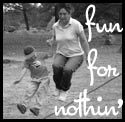It doesn't help that we raise younger siblings, carry someone half our weight on our tiny hips, making sure more morsels are in their mouths rather than ours. It doesn't help that we help, we clean, we cook, we clean, we serve and we clean, and yet the work never seems to get done. It doesn't help that our history is a collective memory of fathers who couldn't be pleased, mothers who never showed affection, uncles with dangerous intents, hungers, blood, fear and abandonment. It doesn't help that we give birth to life and then choose to stamp it out as well.
"Women, according to the UN population agency UNFPA, make up 60% of the billion poorest people on the planet and two-thirds of the 960 million adults who cannot read, while 70% of the 130 million children who are not in school are girls."
In a searing ode to Africa's women, the author says, 'Even in the direst of circumstances, beset by poverty and ill-health, women hold families together, get children to school, work in the fields to grow food they can sell in the market for a subsistence income. Their lives are heroic but unsung.' It's a battle of life for women there: birth, childhood diseases, civil war, poverty and destitution.
Not so far away, here, in India, it's a similar story as well. We seem them everyday - Champaben, Gitaben, Jana tai, Ganga didi, Asha. Flowerly, lyrical names to lives that have been pure misery. Walking kilometers for water. Dropping out of school to support younger siblings. Hand-me-downs from the mistress of the house, taken back home, lovingly, to be shared with two other sisters. 'Get up'. 'Eat'. 'Don't run'. 'Say hello'. English staccatos that resound from a tongue that has learnt to mouth words she will never be able to choose to learn. Pubescent dreams shattered by a neighbour's probing curiosity. Working in a dozen houses, cleaning plates laden with food on a stomach that's rarely felt full. Marital bliss that is limited to the few new clothes and nice bangles: when a husband turns into just one more mouth to feed.
19 hours ago









3 comments:
I cannot tell you how many times I've seen that last sentence being proven true.
There was a recent article in the Washington Post along these lines - http://www.washingtonpost.com/wp-dyn/content/article/2008/12/12/AR2008121204265.html?sid=ST2008121204461&s_pos=
This is part of a series called Woman's World. If you're interested the article above provides a link to the series.
Sujatha - thank you for that link. It's a compelling story - even more so because it's from a place just a couple of hundred miles from where I live - in a reality that is so different from Jyotsna's. Thank you so much for this - will read up on all the features.
And theirs is the last mouth that gets fed.
Post a Comment